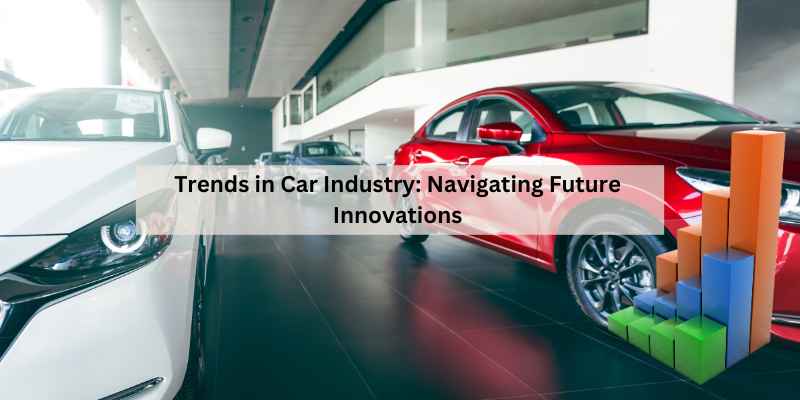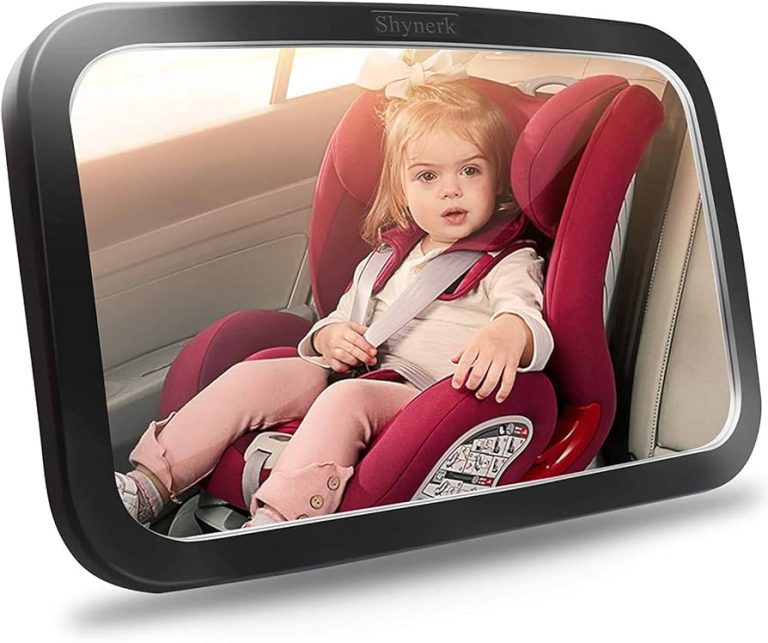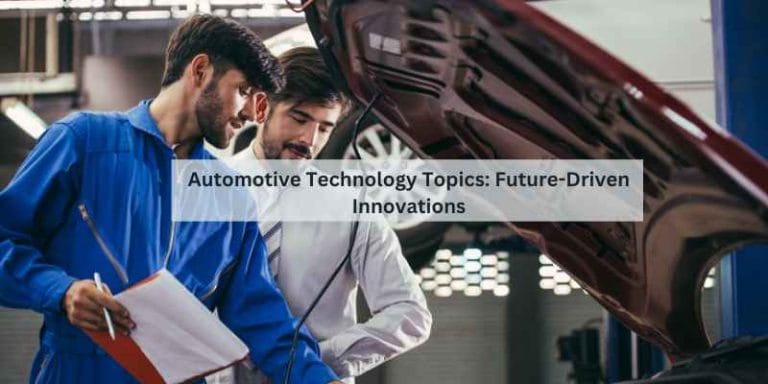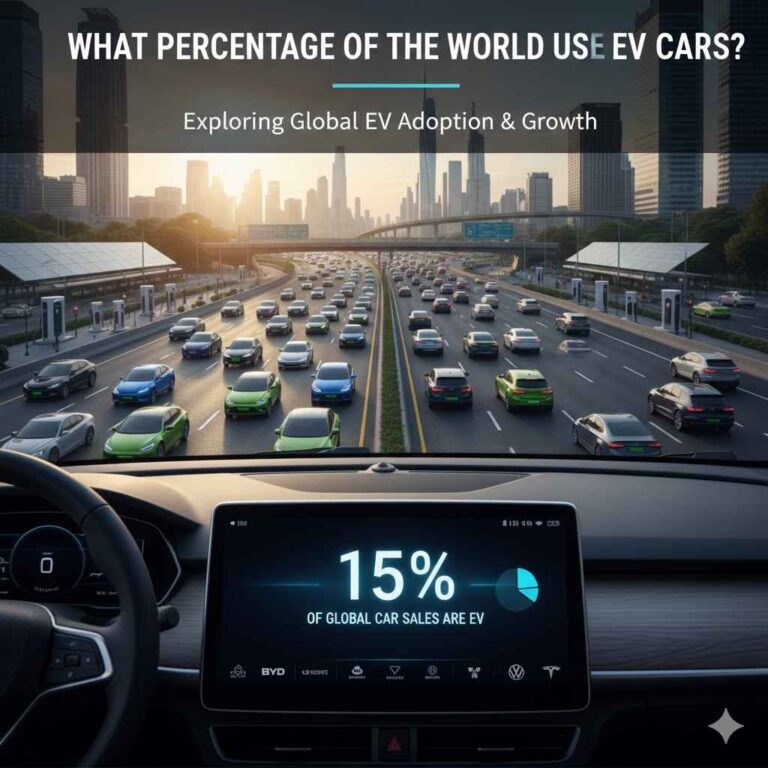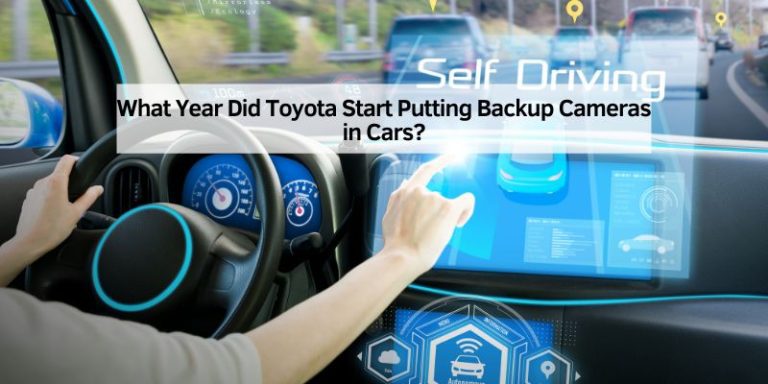Trends in Car Industry: Navigating Future Innovations
The car industry is experiencing significant changes, with a shift towards autonomous driving, alternative power sources, and integration with smart cities. Electric vehicle adoption is also increasing worldwide.
These trends reflect the transformative era the automotive industry is currently undergoing, driven by technological breakthroughs and changing consumer preferences. From hydrogen fuel cells to fully electric engines, the future of cars promises impressive feats of mobility technology. However, while hovering vehicles may not be seen on the streets anytime soon, the industry is certainly moving towards a more intelligent and sustainable future.
This blog explores the latest trends in the car industry and their impact on the future of transportation.
The Electric Vehicle Surge
The Electric Vehicle Surge has been a prominent trend in the car industry. The popularity and market growth of electric vehicles have been remarkable, with more consumers embracing sustainable transportation options. Advancements in battery technology have played a pivotal role in driving the widespread adoption of electric vehicles, offering improved range and charging capabilities. Moreover, the development of infrastructure to support electric vehicles, such as charging stations, has further contributed to their increasing presence on the roads.
Autonomous Vehicles
The trends in car industry are shaping the autonomous vehicles sector. The progress in self-driving cars has the potential to impact road safety significantly. The advancements in technology are leading to the development of autonomous vehicles that can enhance safety by reducing human errors. These vehicles have the capability to detect and respond to potential hazards, thus potentially minimizing the occurrence of accidents. As this technology continues to evolve, it is expected to revolutionize the way people travel, offering a safer and more efficient mode of transportation. Moreover, the integration of autonomous vehicles into the transportation system has the potential to transform the overall road safety landscape, making it a key area of focus in the automotive industry.
Smart City Integration
The integration of smart city technology is one of the emerging trends in the car industry. This involves the development of more intelligent cars that can seamlessly integrate with the infrastructure of smart cities, paving the way for enhanced connectivity and efficiency in urban transportation systems.
| Smart City Integration |
| Vehicles and Urban Connectivity |
| Benefits for Traffic Management |
With the integration of smart cities, the automotive industry is poised to revolutionize urban mobility. By connecting vehicles with the city’s infrastructure, cars can communicate with each other and city systems to optimize traffic flow. This integration will also enable improved public transportation, reducing congestion and air pollution. In addition, it will provide real-time data to traffic management authorities to make informed decisions. The benefits of smart city integration in the automotive industry are manifold, including increased safety, reduced travel time, and a more sustainable future. Overall, the integration of smart cities with vehicles will create a more efficient and interconnected urban environment.
The Rise Of Shared Mobility
The rise of shared mobility has significantly impacted car ownership trends. The emergence of car sharing services has led to a shift in consumer behavior, with more individuals opting for shared transportation options rather than owning a vehicle outright. This shift has had profound implications for the automotive industry, influencing the design and production of vehicles to cater to the demands of shared mobility services. Additionally, the environmental impact of reduced individual car ownership has become a key consideration, driving the development of eco-friendly and sustainable transportation solutions. As shared mobility continues to gain traction, it is expected to further shape the future of the car industry, driving innovation and influencing market dynamics.
Servitization In Auto
The car industry is witnessing a shift towards servitization, as companies offer more services in addition to traditional car sales. This trend reflects the evolving consumer demands and the push towards mobility as a service, integrating technology and alternative power sources into the automotive landscape.
| Servitization in Auto |
| One of the latest trends in the car industry is the shift from ownership to usership, also known as servitization. This means that instead of owning a car, individuals are opting for car-sharing services or subscription-based models. This shift in consumer behavior has led to the emergence of new business models that focus on providing mobility as a service rather than selling cars. The servitization trend has also resulted in the integration of various smart technologies, including autonomous driving and the use of alternative power sources such as hydrogen fuel cells and fully electric engines. |
Mobility As A Service (maas)
Mobility as a Service (MaaS) is a growing trend in the car industry, offering consumers a convenient and flexible way to access transportation services. With MaaS, individuals can seamlessly switch between various modes of transportation, such as ridesharing, public transit, and bike sharing, all through a single platform.
This trend is reshaping how people move around and is expected to continue gaining momentum in the future.
| Mobility as a Service (MaaS) |
| With the increasing demand for transportation solutions, Mobility as a Service (MaaS) has emerged as a one-stop solution for all transport needs. MaaS enables users to access various modes of transport, including public transport, ride-sharing, and car-sharing services, through a single platform. This has led to a rise in the number of technology providers who offer MaaS solutions to their customers. These providers play a crucial role in integrating various modes of transport and providing a seamless travel experience to users. With the help of technology, MaaS providers are able to offer real-time information on transport options, including availability, pricing, and travel times. As the demand for MaaS continues to grow, it is expected that technology providers will play an increasingly important role in shaping the future of the car industry. |
| The Role of Technology Providers |
| Technology providers play a critical role in shaping the future of the car industry. They are responsible for developing and integrating the various technologies that enable the seamless functioning of MaaS solutions. These technologies include real-time data analytics, machine learning algorithms, and artificial intelligence. Technology providers are also responsible for ensuring the security and privacy of user data, which is crucial for building trust among users. With the rapid advancements in technology, it is expected that technology providers will continue to play a crucial role in shaping the future of the car industry. |
Alternative Power Innovations
The automotive industry is experiencing a transformative era, with technological breakthroughs and shifting consumer preferences. From autonomous driving to alternative power sources like hydrogen fuel cells and solar power advancements, the industry is witnessing significant changes. The adoption of electric vehicles is increasing worldwide, and the car chip shortage has also impacted the industry. As the industry continues to evolve, it is crucial for companies to stay updated with the current trends and anticipate the future trends to remain competitive in the market.
Facing The Tech Challenges
The automotive industry is facing a number of tech challenges, including navigating the chip shortage and adapting to consumer tech demands. The chip shortage has caused disruptions in the supply chain, leading to delays in production and delivery of vehicles. Automakers are also working to keep up with the latest consumer tech demands, such as in-car connectivity, advanced safety features, and electric and autonomous vehicles. In order to stay competitive, companies must invest in research and development to innovate new technologies and solutions. The industry is also seeing a trend towards shared ownership and servitization, where consumers pay for mobility services rather than owning a vehicle outright. As the industry continues to evolve, it is important for companies to stay up-to-date with the latest trends and technologies to remain relevant and successful.
Frequently Asked Questions
What Is The Trend In The Automotive Industry?
The automotive industry is experiencing a shift towards more intelligent and autonomous vehicles, integration with smart cities, shared car ownership, alternative power sources, and mobility as a service. These trends are driven by technological breakthroughs and changing consumer preferences. Electric vehicle adoption is also increasing worldwide.
The industry is undergoing a transformative era with challenges and opportunities for OEMs.
What Is The Future Of The Car Industry?
The future of the car industry is witnessing significant changes, including the development of autonomous-driving cars, hydrogen fuel-cells, and fully electric engines. These advancements are reshaping the automotive landscape and transforming the way we drive. From increased adoption of electric vehicles to integration with smart cities, the industry is evolving to meet the demands of a hyper-connected society.
Technological breakthroughs and shifting consumer preferences are driving this transformative era in the automotive industry.
What’s Next In The Car Industry?
The car industry is experiencing major changes with the future bringing advancements such as autonomous driving, integration with smart cities, shared car ownership, and alternative power sources. Electric vehicle adoption is also increasing worldwide. These trends are transforming the industry, driven by technological breakthroughs and shifting consumer preferences.
What Is The Prediction For The Car Industry?
The future of the car industry is witnessing significant changes with the emergence of new technologies and consumer preferences. We can expect advancements such as autonomous driving, integration with smart cities, shared car ownership, alternative power sources, and more intelligent cars.
Electric vehicle adoption is also increasing worldwide. These trends indicate a shift towards a more sustainable and technologically advanced automotive industry.
Conclusion
The car industry is experiencing significant transformations driven by technological advancements and changing consumer preferences. From the rise of electric vehicles and autonomous driving to the integration with smart cities and shared car ownership, the future of the automotive industry looks promising.
With a focus on alternative power sources and servitization, the industry is adapting to meet the demands of a hyper-connected society. As the industry continues to evolve, it is crucial for stakeholders to stay informed and embrace these trends to stay competitive in the market.

